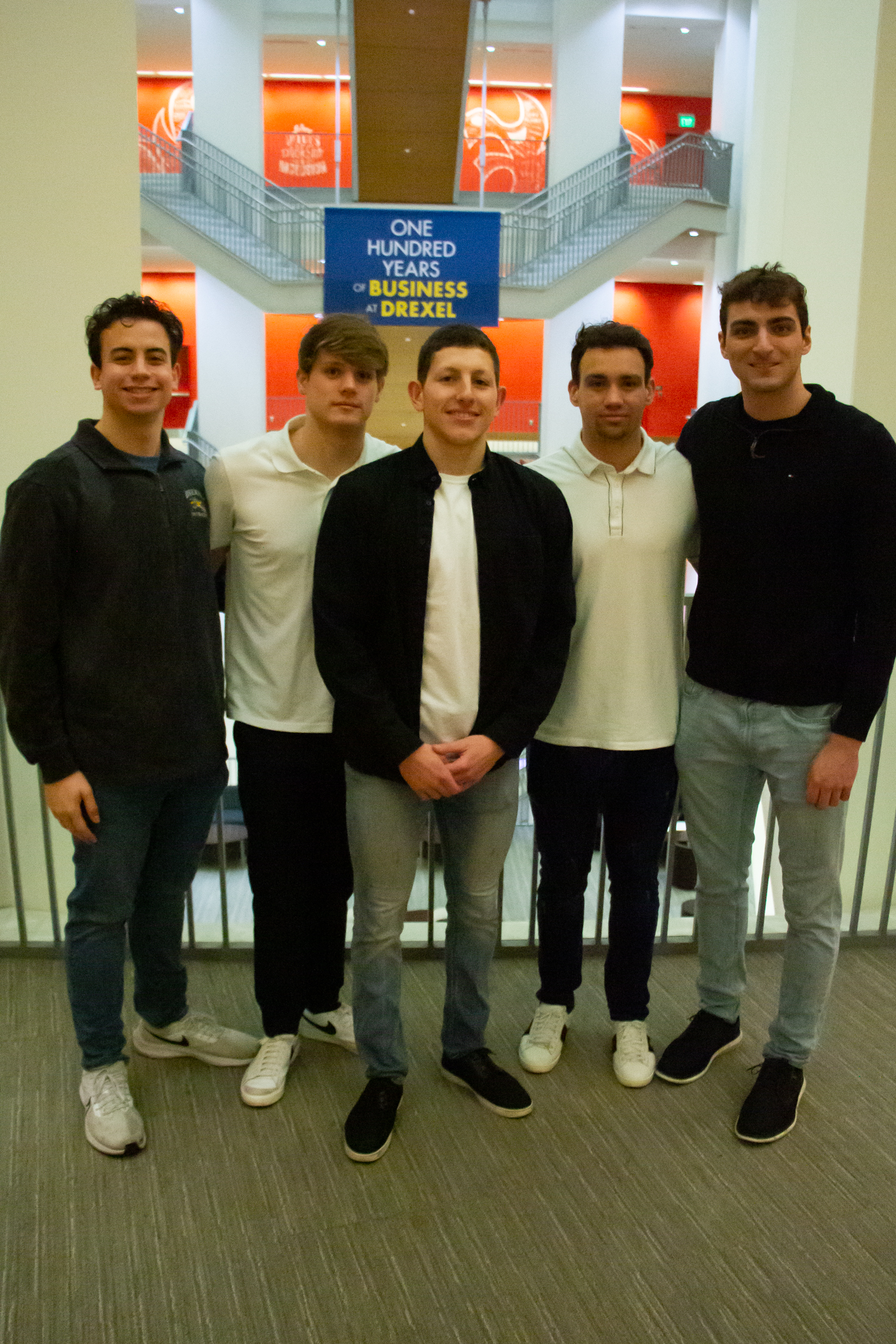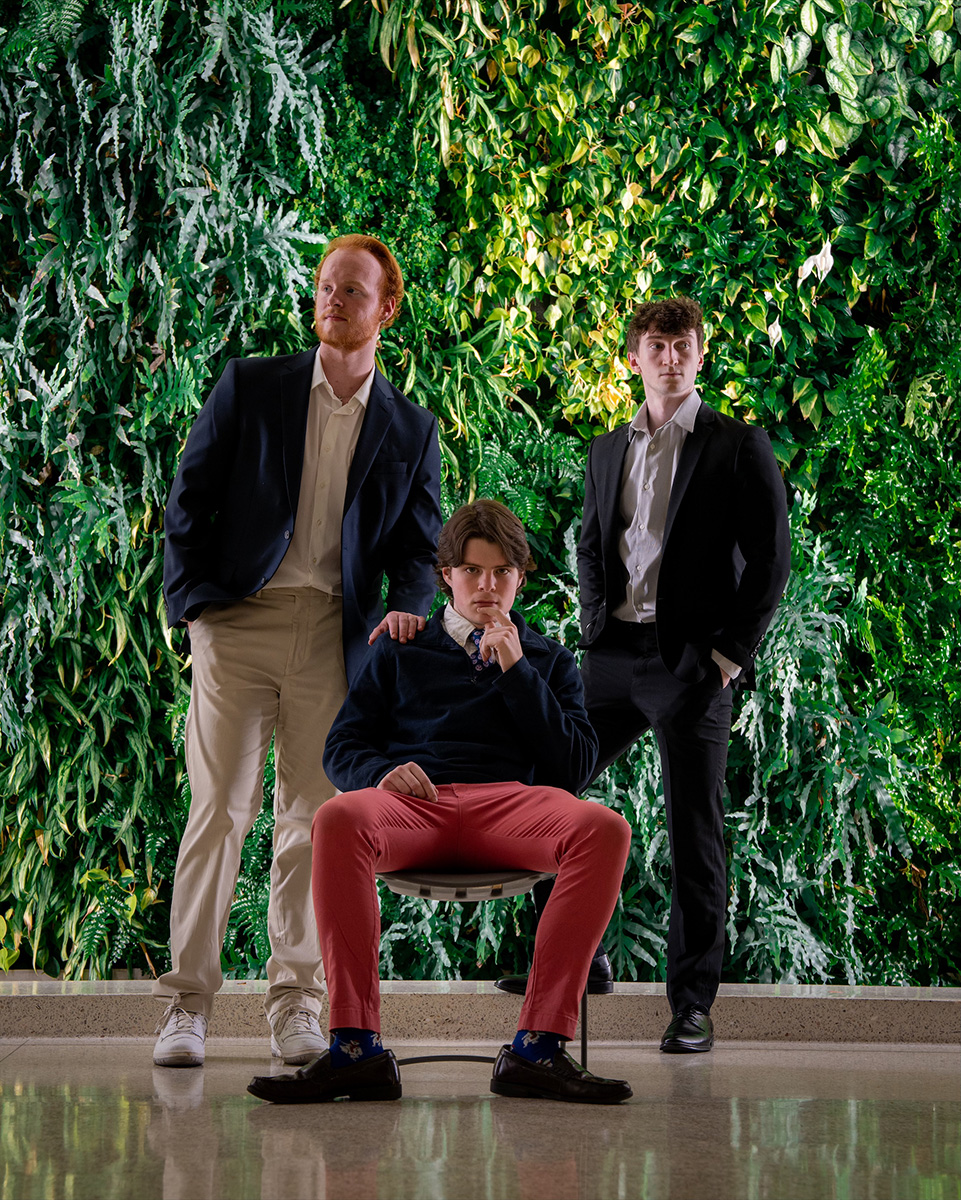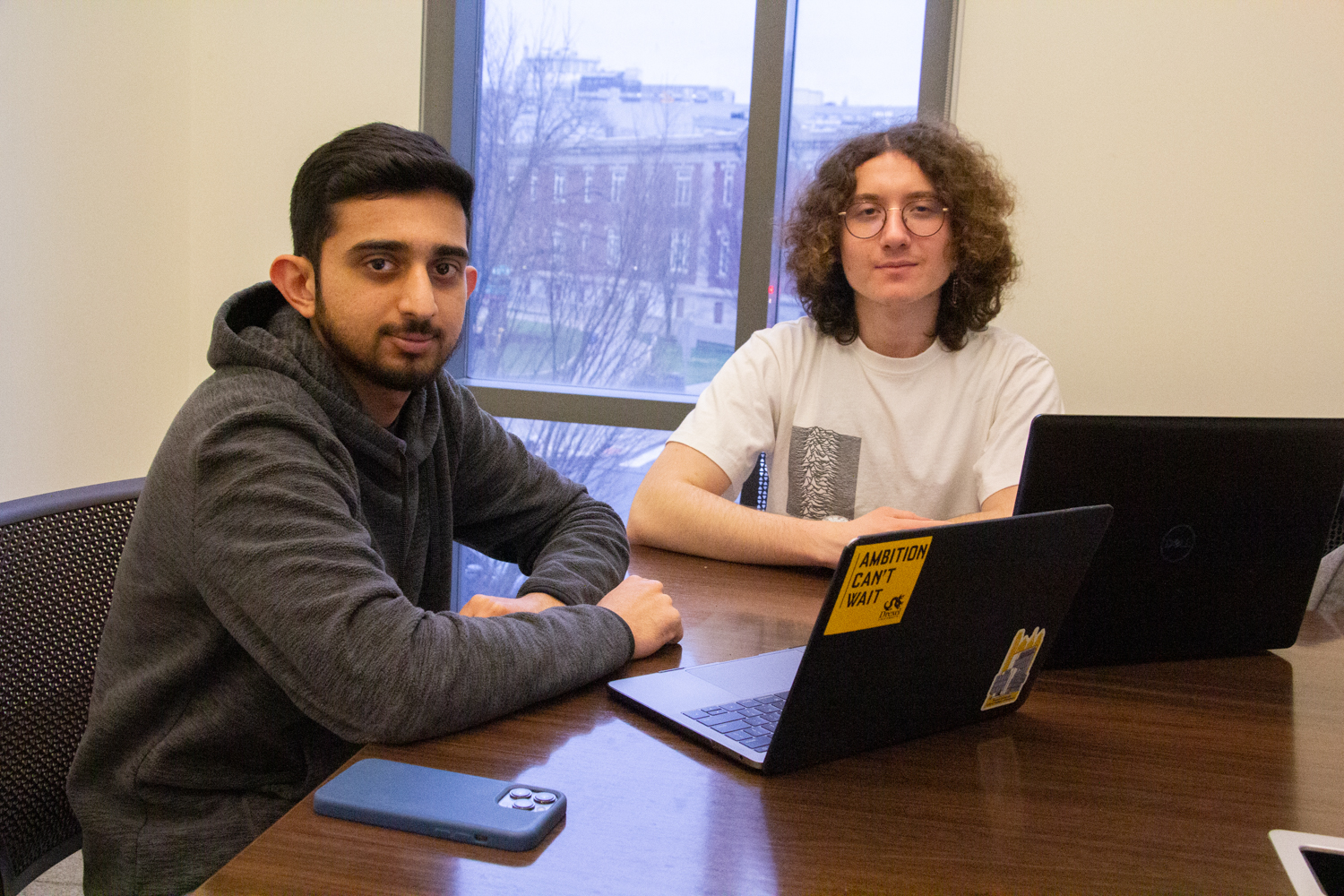Eight teams comprised of business and engineering students will compete to
pitch solutions to a manufacturing problem this week. At stake are cash
prizes, valuable resume-building experience and a chance to shine in front
of higher ups from one of the world’s largest aerospace companies.
The students are finalists in the Boeing Case Competition, which kicked off
last month. To enter the competition, students from the LeBow College of
Business must pair with either students from the College of Engineering or
colleagues in LeBow who are studying business and engineering. Seven of the
eight finalists include CoE students.
Each team is given the same hypothetical problem to solve: Boeing has been
contracted to manufacture more than 320 Chinook helicopters by 2029 but
does not currently have the person hours to meet the goal at their current
pace. The teams were asked to work together to find solutions that made
sound business sense and incorporated the creative thinking of an engineer.
 Team Griffy
Team Griffy
Team Griffy, which is comprised of teammates from the Drexel Men’s Swimming
and Diving team, includes a variety of specialties – one student each
majoring in finance and economics, business and engineering, chemical
engineering, electrical and computer engineering, and mechanical
engineering. The team was built to make the most out of their diversity of
expertise.
“We split the work in a way to make use of the specialties we had,” said
Nathan Piccolo, B.S. mechanical engineering ’26. “Our two business
students, with the help of one of our engineering students, tackled the
problem by looking at labor and management. Our other two engineers worked
on improving the cost and efficiency of the Chinooks.”
Solutions include opening new manufacturing facilities, finding
efficiencies in scheduling work shifts, improving cost of parts, and
investing in new technology.
 The Mockford Group
The Mockford Group
The Mockford Group, which includes two mechanical engineering students, an
electrical and computer engineering major and a business and engineering
student, used Lean and Agile, two project management frameworks that
maximize efficiency while minimizing waste, to develop their solution.
Cooper Kramer, B.S. business and engineering ’25, said that the team’s
classwork has prepared them for this moment.
“Our engineering classwork has allowed us to understand the processes
behind producing the aircraft, and has given us a concrete foundation for
making decisions regarding underproduction,” he said. “Using Lean and
Agile, along with continuous integration / continuous delivery
implementation, which we also learned in class, have allowed us to fully
understand the nature of the problem all the while producing reliable,
feasible solutions.”
Throughout the process, three members of the Boeing staff have acted as
mentors to the teams, making themselves available to answer questions about
the nuances of Boeing’s operations, get clarification on the case, or give
context about the defense industry in general. At the final presentations,
another three senior Boeing leaders will judge the competition.
 Mohammad Alavi (left) and Gabriel O'Brien, of Team GYMS Advisor
Mohammad Alavi (left) and Gabriel O'Brien, of Team GYMS Advisor
“I have to admit that, from the times I used to play with toy planes as a
kid to my high school years when I used to build and fly unmanned air
vehicles, working with Boeing has been my greatest dream of all,” said
Ahmet Yalim Kiral, B.S. mechanical engineering ’27, a member of Team GYMS Advisor. “So I am really happy
to have this opportunity of working with a company that is so highly
regarded. It has been an experience of great importance for me.”
Teams will give their final presentations through the course of the day on
Friday, February 24. The first place team will win $2,000, second place
$1,000 and third place $500.